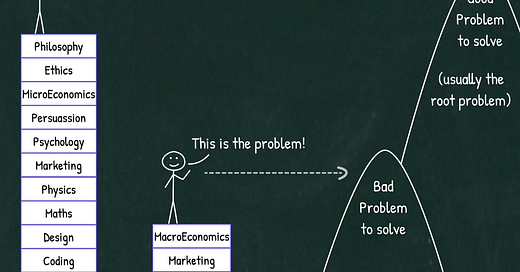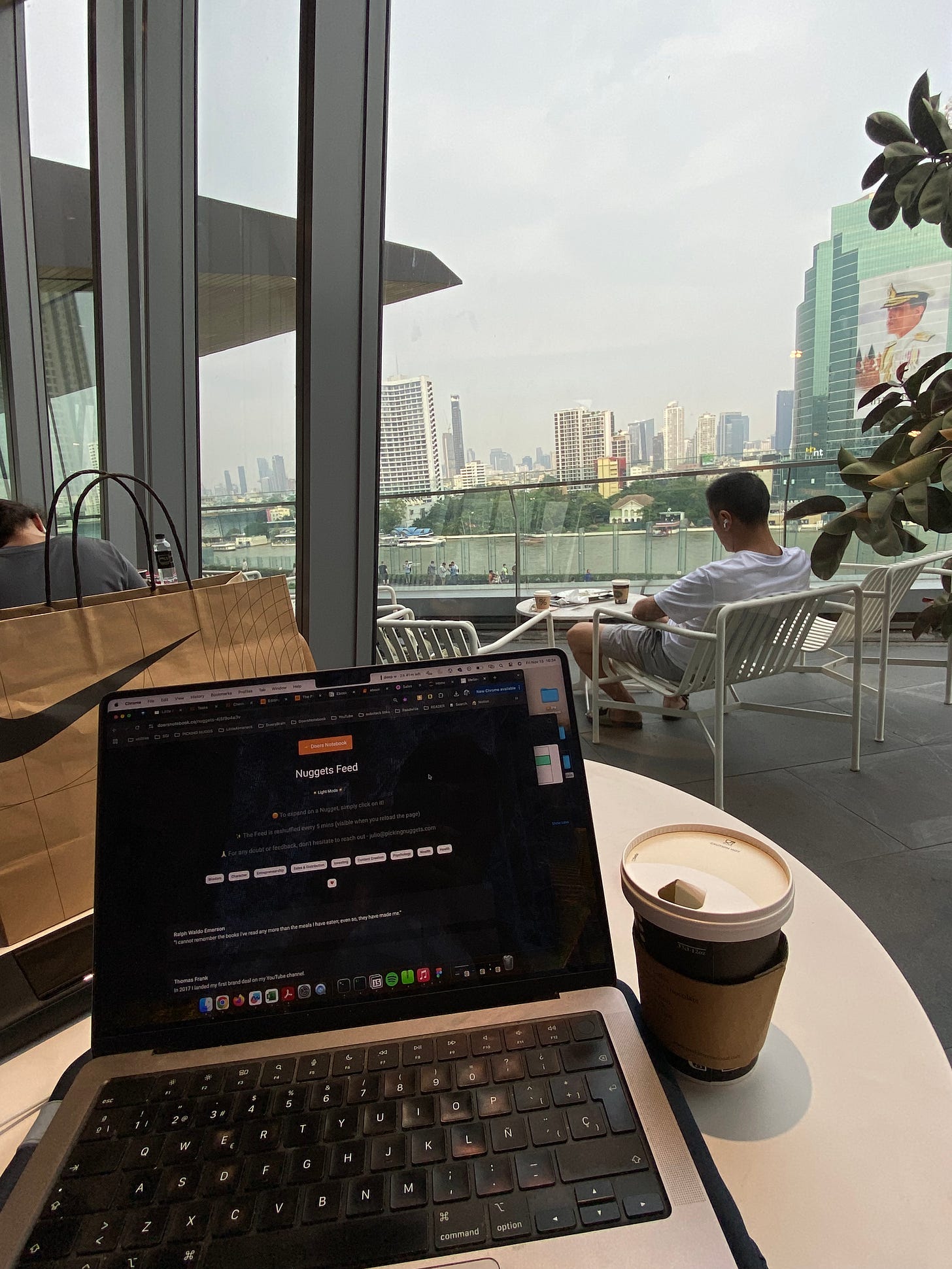I read this story on the book The 33 Laws of Business and Life, written by Steven Bartlett (host of the podcast The Diary Of A CEO).
It illustrates how an insight from Psychology, and an attitude of being a problem-seeker (instead of a problem-solver) unlocked hundreds of millions for Domino’s Pizza.
This is an amazing business story with a deep lesson for all entrepreneurs out there!
👤 Doers
💡Nugget
🟠 Steven Bartlett:
In 2008, Domino’s Pizza experienced an interesting operational and customer experience challenge. Customers who were waiting longer than they expected for their pizza would phone Domino’s to ask where it was. The whole process of pizza making would then be interrupted, because the person making the pizza would be asked why there was a delay by the person who’d answered the phone, and the customer would ultimately be given a vague and uncertain answer. A calling customer was unwittingly delaying the delivery of their own pizza, because of the lack of operational transparency they’d been given.
Some pizza chains responded to this challenge by investing in warming bags to keep the pizzas hot, hiring more staff and drivers, launching money-back guarantees on delivery times and offering free breadsticks for slow deliveries, but their phones carried on ringing. What they were all missing was the psychological frustration at the heart of the problem – people didn’t want faster delivery – they wanted less uncertainty about their delivery. Domino’s understood this, and in 2008, using their pre-existing in-house order-management software, they created the now famous ‘Domino’s Pizza Tracker’, which shows customers exactly where their order is in a five-step process.
This small psychological insight and the innovation it produced changed Domino’s business. Angry phone calls plummeted, customer satisfaction and retention skyrocketed and Domino’s saved and made hundreds of millions in the process.
Research published in the journal Nature showed that it’s less psychologically stressful to know something negative is about to happen (e.g., our pizza is going to be 30 minutes late) than to be left in uncertainty (e.g., we have no idea where the late pizza is). That’s because the area of our brain that tries to anticipate consequences is most fired up when we’re faced with uncertainty – it’s on edge. As Rory Sutherland explains in his book Alchemy, a ‘DELAYED’ alert on your scheduled flight is much more mentally irritating than a ‘DELAYED 50 MINUTES’ alert.
👉 Book - The Diary of a CEO: The 33 Laws of Business and Life
The philosophy of Alan Kay aligns here — he says is much better to be a "problem-finder" than it is to be a "problem-solver". Because finding the right problem to solve is the real deal! (Solving the problem is the last thing you do). But schools never rewarded us to be "problem-finders" — we were only rewarded to solve problems.
But the thing is, even if we excel at solving problems, it doesn't matter (in the real world -- outside of Academia) if we are solving the wrong problem! As Naval Ravikant and Sam Altman say, picking the right thing to work on is much more important than how hard you work.
“If I had an hour to solve a problem I'd spend 55 minutes thinking about the problem and five minutes thinking about solutions.”
- Albert Einstein
"In an age of infinite leverage, judgment is the most important skill."
- Naval RavikantAfter reading the story, I was reminded of this quote from Charlie Munger, where he points out the importance of having different models in your head:🟠 Charlie Munger:
What is elementary, worldly wisdom? Well, the first rule is that you can’t really know anything if you just remember isolated facts and try and bang ’em back. If the facts don’t hang together on a latticework of theory, you don’t have them in a usable form.
You’ve got to have models in your head. And you’ve got to array your experience—both vicarious and direct—on this latticework of models. You may have noticed students who just try to remember and pound back what is remembered. Well, they fail in school and fail in life. You’ve got to hang experience on a latticework of models in your head.
What are the models? Well, the first rule is that you’ve got to have multiple models—because if you have just one or two that you’re using, the nature of human psychology is such that you’ll torture reality so that it fits your models, or at least you’ll think it does. You become the equivalent of a chiropractor, who, of course, is the great boob in medicine. It’s like the old saying, “To the man with only a hammer, every problem looks like a nail.” And, of course, that’s the way the chiropractor goes about practicing medicine. But that’s a perfectly disastrous way to think and a perfectly disastrous way to operate in the world. So you’ve got to have multiple models.
And the models have to come from multiple disciplines—because all the wisdom of the world is not to be found in one little academic department. That’s why poetry professors, by and large, are so unwise in a worldly sense. They don’t have enough models in their heads. So you’ve got to have models across a fair array of disciplines.
You may say, “My god, this is already getting way too tough.” But fortunately, it isn’t that tough—because 80 or 90 important models will carry about 90 percent of the freight in making you a worldly-wise person. And, of those, only a mere handful really carry very heavy freight.
👉 Book - Poor Charlie’s Almanack: The Essential Wit and Wisdom of Charles T. Munger
🟠 Get Access to my personal Notebook of Nuggets
📁 All insights in this letter are saved and classified in a searchable Database, which (as of November 2024) contains more than 2,400 timeless insights (sourced directly from the most influential doers and entrepreneurs).
I call it the “Doers Notebook” and I’ve opened it for anyone who wants it.
🤔 Why did I build this?
Well, as the Latin motto goes, “A chief part of learning is simply knowing where you can find a thing.” And since it’s all 🔎 searchable, you only need to type a keyword to immediately get a list of insights related to it!
For instance, if I’m unsure about how to get more sales in my business, I can simply type the word “sales” and immediately get 88 search results! In this case from Jim Edwards, Peter Thiel, Naval Ravikant, Paul Graham, Sam Altman, Balaji Srinivasan, Nassim Taleb, and many other individuals.
It’s like having a 🧠 second brain from which we can pull wisdom on demand.
And this is extremely valuable because it can significantly decrease the error rate in our judgment.
“In an age of infinite leverage [code and media], judgment is the most important skill.”
- Naval Ravikant
I actually made a video where I go through the list of insights i got for the keywords “sales” and “creative”. So, if you wanna get better at sales or learn to be more creative (and also see all the features of the database and how you can get access) then definitely check out the video 👇
💥 Stuff I Loved
I came to Thailand 🇹🇭
I’m spending a week in Bangkok (until next Wednesday) and then I head to Chiang Mai for three weeks.
If you also happen to be here, hit me up!
And if you already been here… What’s your favorite place?
Happy Friday ;)
Julio xx















Have a great time in Thailand it’s a beautiful country! 🇹🇭
Come to Vietnam